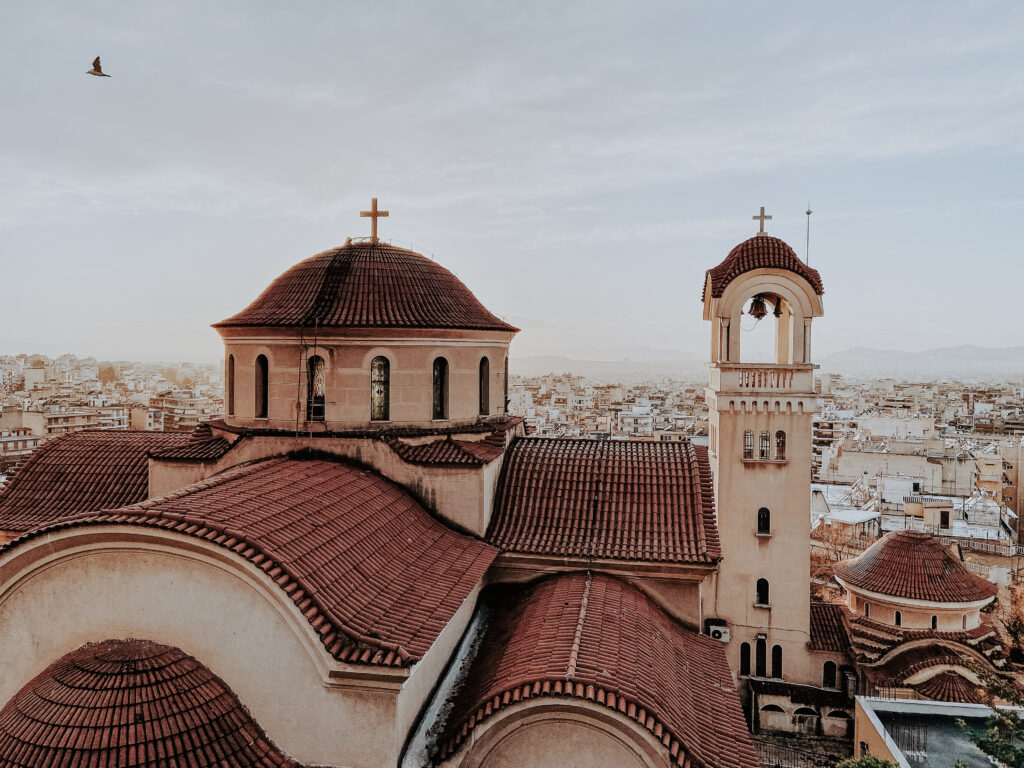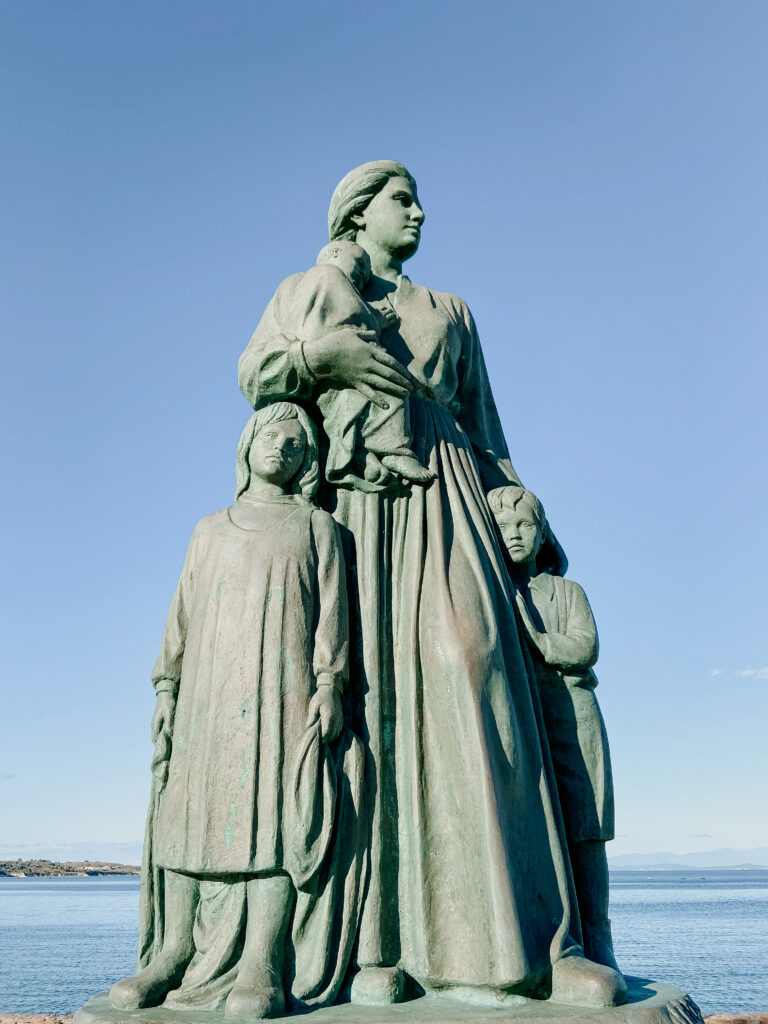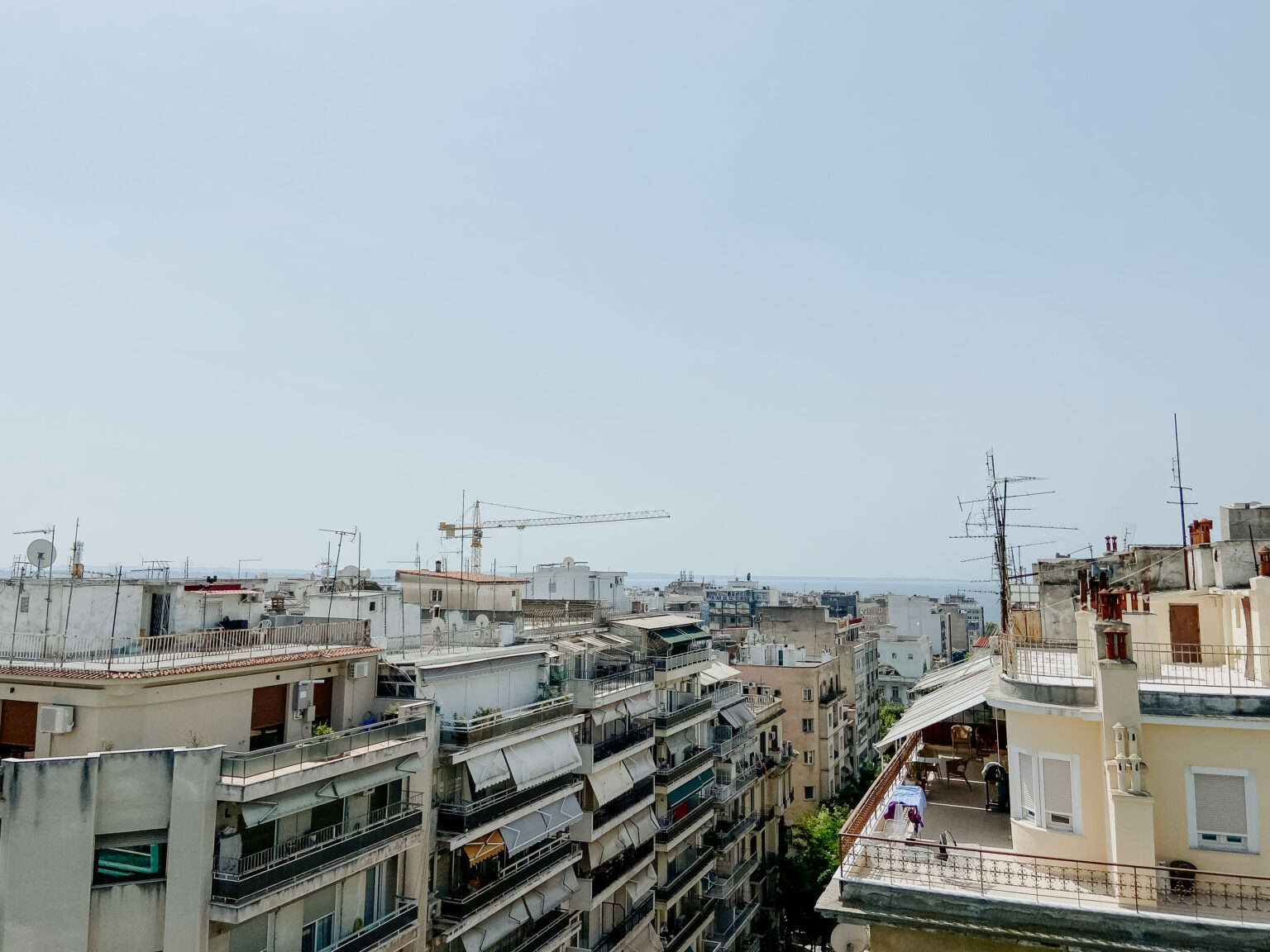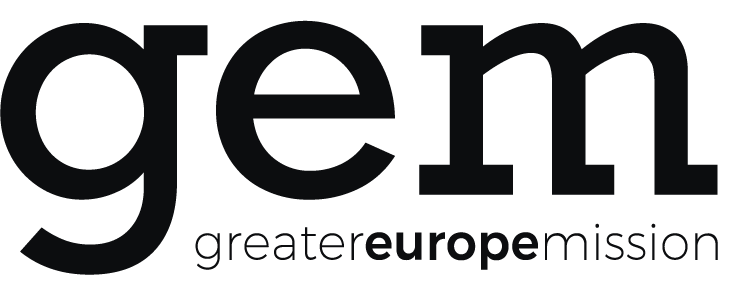Connecting with Your Mission Field through History

She stood at the front of a long procession, hands bound and head held high. Miss Konstantopoulou knew what lay ahead, and so did the 49 others fettered behind her. There was only one reason why people were brought to the Kaisariani Shooting Range. And there was only one way out of what the SS officers had fashioned into an execution ground.
The German occupation of Athens was harsh, and this was the cost of resistance. Orders were shouted across the square as foreign men with their unknown language lined up their slaughter-to-be. Three years of working with the resistance brought her here, to her meeting with death, at 17 years old.
“Iro Konstantopoulou!”
One of the strange men barked her name and she was led to the middle of the square. The 49 others watched the march of a child as they prepared to suffer the same fate.
It had been three years since she heard the national anthem of her people. Three years since that last radio broadcast call: “Greeks, keep your hearts high…our war will continue, and it will be continued, until the final victory.” The resilient, yet heavy-hearted tone of the broadcaster faded into empty static as the besieged city fell.
And now, for the last time, she looks out at her homeland, at her beloved Athens, giving her life that her city might one day breathe free air again.
At 17 years old, she says goodbye to home forever, her name cemented in history. At 17 years old, 17 bullets tore through her body––one for each year of her short life––only 37 days before her city met its final victory and saw liberation on 12 October, 1944.
Local History, Global Trauma
Today, this place is nothing more than a small, unassuming square off the street. This bench-lined square is full of families. Parents cluster together for conversation as their kids run around throwing laughter into the air.

But as I sit in the back of the taxi waiting for the light to turn, my driver shares with me this sobering and patriotic tale of Iro Konstantopoulou. As an American living in Europe, I can’t help but notice the immensity and depth of history that exists here. This bit of local history wrapped up in the global trauma of World War II sat with me long after my cab ride was over.
Though America participated in the war, it was not waged on our soil. It did not wreak havoc in our towns, nor did it carve cavernous gashes into our spirits the way it did in Europe. As the war came to a close, and soldiers returned to their homes, the physical damage remained.
Soldiers returned to cities and villages where the living shared roads with the dead. Where blood painted rubble and public squares became centers of public executions.
Over time, those broken things were rebuilt and people eventually returned to “normal” life, but wounds unnumbered were left all the same. Though these scars heal and perhaps partially fade, they never fully relinquish us of themselves. They remain as totems nodding to a past pain.
Since that time, Europeans live among these commonplace scars that, though new stories are written, continue to carry the weight of past darkness. Every day, elder Europeans remember what once was. In some ways, they cannot separate or remove themselves from the horror wrought in their very neighborhoods.
Such deep-set trauma molds the way we see the world around us, informing our observations and influencing our perspectives.
Europe continued on, forever changed.

New Threats Bring Tension––and Compassion
Fast forward to 2015 when Europe received a titanic influx of refugees from different parts of the Muslim world. Relatively unknown and untouched Greeks islands bordering Turkey were overwhelmed. Camps could not contain the masses who made the journey across the Aegean in overcrowded and unsafe conditions.
Overcrowding has become so pronounced in some areas, the refugee population began to match or exceed the local population. As this became more common on islands and in villages and neighborhoods, a new dynamic developed. Locals saw refugees not as those fleeing war, rape, enslavement, murder, imprisonment or execution, but as a mass force coming to take over their land. Tensions grew, both sides hatefully labelled by the others.
And now, eight years later, a refugee crisis has struck Europe again.
Recently, as I was paying rent to my landlord, we began discussing the war in Ukraine. She expressed a deep sadness over the killing and death, but what she said next shed light into deeper parts of her heart.
“I wonder if any of the refugees will come here.”
Here, her home––a place in the throes of financial turmoil. Here, a place that has been dealing with a refugee crisis for eight years––my place of ministry. Here, a crossroads for many on the path from death into life.
From the wars of Europe’s past to the wars of Europe’s present, a collective trauma rests in the bones and in the homes of many of its residents.
I wonder what memories the war brings as it continues to sink its teeth deeper into daily life. What fears stem from its poisonous bite? What flashbacks from a collective memory spring forth unannounced as Europe hosts a rising number of refugees? What emotions and fears that have laid dormant for years are bubbling and broiling towards the surface?
War once decimated and defiled Europe, and as the war in Ukraine continues ceaselessly, will this happen once again? Will this plaguing darkness ever truly leave?
How Will We Respond?
I write these words to give a background and basis for the questions I have been asking myself – and now all of you – to consider.
How can we more actively and intentionally learn about those whom we serve? How can we grow in cultural insight and thought so we can do our best to speak into the heart of the culture from a place of connectedness rather than from a far-off place of cultural difference?
Are we willing to learn from those who are different from us? What does it truly look like to meet people where they are? Can we acknowledge the sacrifices required on our part to do that well? How can we become more comfortable with grief and even sit with trauma? What humility must we pursue as we seek to be builders of God’s divine Kingdom not only in Europe but among all the different cultures who now take up residence here?
Of late, I have begun reading and praying through different liturgies as a means of centering and focusing my thoughts and spirit. As we consider those around us and the gospel of grace that surrounds us, I invite you to step into these words from Douglas McKelvey’s book of Liturgies, Every Moment Holy:
“Indeed, O Lord, let us love now more fearlessly, remembering that you created us, and appointed us to live in these very places, in the midst of these unsettled times. It is no surprise to you that we are here now, sharing in this turmoil along with the rest of our society, for you have called your children to live as salt and light among the nations, praying and laboring for the flourishing of the communities where we dwell, acting as agents of your forgiveness, salvation, healing, reconciliation, and hope, in the very midst of an often-troubled world. And in these holy vocations you have not left us helpless, O Lord, because you have not left us at all. Your Spirit remains among us.”
Douglas McKelvey Every Moment Holy
Read more about GEM’s refugee work in Lesvos: Still Here, Refugees on Lesvos
About the author: Anonymously written by a GEM worker in Greece.
